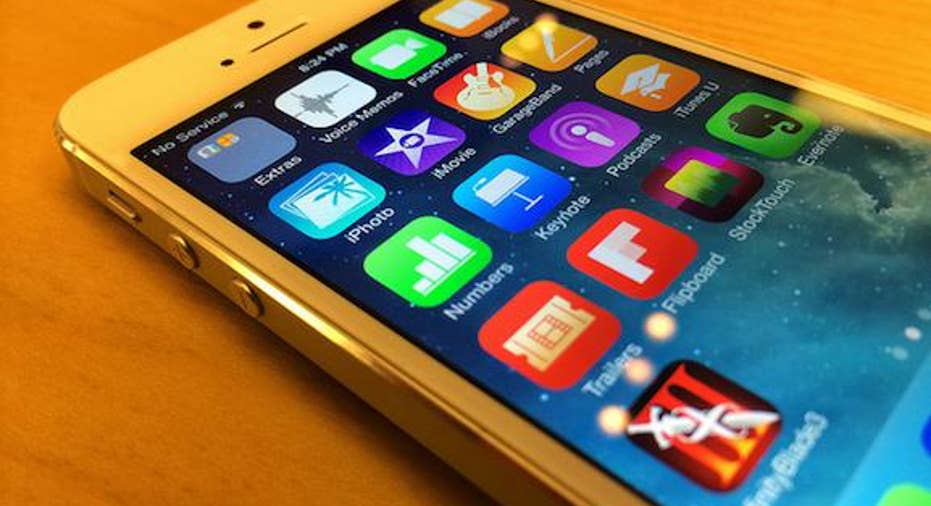1 Theory Why the Rumored iPhone 6c Won't Change a Thing for Apple

We might be just a few months away from a rumored Apple 4-inch iPhone 6c launch. A recent presentation from China Mobile showed a schedule revealing an April launch date for an upcoming Apple device, whichcoincides with other reports that Apple is set to launch a new 4-inch phonein the spring.
But while the rumors are flying about the 6c's specifications (you can read all about them here),one question remains: Will this device have any significant impact for Apple?
If we look at the price points Apple currently sells its devices for, the margins it has for its iPhones, and its strategy for the emerging markets, it appears the new 4-inch iPhone 6c may not change much for the company.
New phone, same traitsBusiness Insider recently published some thoughts thatPiper Jaffray analyst Gene Munster shared over the summer about the rumored 4-inch iPhone:
Let's take a moment to dissect both arguments in this statement. Munster says we can't expect Apple to sell more 6c devices than it does 5s devices right now. Why? Because that would clearly eat into Apple's more expensive iPhone 6s and 6s Plus models, as well as its older (but still expensive) 6 and 6 Plus devices.
The rumored iPhone 6c is expected to cost between $400 to $500, which is lower than the 16 GB iPhone 6 that sells for $549 off-contract, or the 16 GB iPhone 6s, which sells for $649 off-contract.None of this is earth-shattering news, of course, because the iPhone 5s sells for $450 without a contract. This simply puts the iPhone 6c right around the same price point as Apple's cheapest iPhone offering, which seems logical.
Now, about those margins. If Apple priced the new 6c much lower than the 5s, then it might convince lots of users to buy the cheaper device, and thus hurt the iPhone's average selling price (ASP), lower its margins, and eventually hurt its revenue. But pricing the 6c at the same price as the 5s perpetuates Apple's ASPs and allows the company to maintain its current margins.
Why Apple is likely to play it safeThere's been a lot of talk that the iPhone 6c could be a device aimed at the emerging markets. But I don't think that approach fits in with how Apple's targeted the emerging markets so far.
The company has released older versions of its devices, like the 5s, into India and other countries, and sold them for cheaper prices. But it hasn't created a specific emerging market iPhone. Some people wanted the 5s to be that device, but it wasn't priced low enough to be a truly emerging market phone, which typically costs hundreds of dollars less than Apple's cheapest phone.
The fact is that Apple isn't likely to voluntarily contract the wide margins it earns from its premium devices. Instead, it seems best to assume that the company will continue to target emerging markets with older devices like the 5s. The company already slashed the price of the 5s in India from $665 to $370 (go here if you want to read why iPhones are more expensive in India than other countries), which puts its much closer to the Android devices that it competes against in the South Asian country.
Apple isn't trying to disrupt the emerging markets with a new phone, and it probably doesn't need to. It can sell older devices at cheaper prices in India and other places, and maintain its high margins in the U.S., China, and elsewhere. It's worked well for Apple so far, and I doubt the company wants to change much now. The 6c will likely become the cheapest option in the U.S. and other rich markets, while the 5s will continue being sold as the main iPhone for emerging markets.
The article 1 Theory Why the Rumored iPhone 6c Won't Change a Thing for Apple originally appeared on Fool.com.
Chris Neiger has no position in any stocks mentioned. The Motley Fool owns shares of and recommends Apple. The Motley Fool recommends China Mobile. Try any of our Foolish newsletter services free for 30 days. We Fools may not all hold the same opinions, but we all believe that considering a diverse range of insights makes us better investors. The Motley Fool has a disclosure policy.
Copyright 1995 - 2016 The Motley Fool, LLC. All rights reserved. The Motley Fool has a disclosure policy.



















